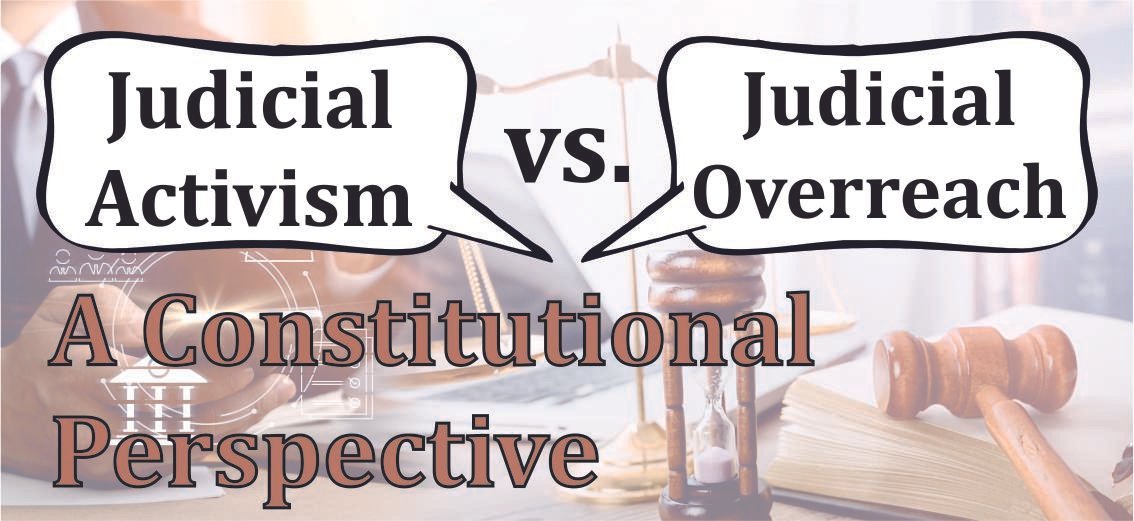Justice Surya Kant warns of judicial overreach threatening India’s Constitutional balance during a keynote at the Envision India Conclave.
Subheading:
Justice Surya Kant, Supreme Court judge, underscores the judiciary’s vital role in maintaining institutional harmony and warns against overstepping constitutional boundaries.
In a time when judicial intervention increasingly dominates political discourse, Supreme Court Judge Justice Surya Kant has voiced concern over the risks of judicial overreach disrupting the nation’s delicate constitutional equilibrium. Speaking at the ‘Envision India Conclave’ in San Francisco, Justice Kant offered a sharp reflection on the scope and boundaries of judicial power in a democracy.
“The judiciary must remain conscious of the constitutional line dividing governance and adjudication,” said Justice Kant, adding that while courts are obligated to safeguard rights, they must not “assume the mantle of governance.”
Judiciary’s Role: Watchdog, Not Overlord
Justice Kant’s speech comes at a time when judicial activism has surged into mainstream debate, often lauded for correcting executive excesses but equally criticized for overstepping into legislative or policy domains. He reiterated that the Constitution of India envisages a clear separation of powers among the executive, legislature, and judiciary—a principle crucial for preserving institutional integrity.
Quoting Dr. B.R. Ambedkar, he noted:
“The judiciary is to interpret the law, not rewrite it under the guise of interpretation.”
This statement subtly echoes criticism surrounding recent judicial interventions in administrative and political matters—from the Pegasus surveillance case to the electoral bond scrutiny.
Growing Public Scrutiny & Social Media Impact
Justice Kant also acknowledged the contemporary pressures faced by the judiciary, particularly the instantaneous judgment culture fostered by social media and online commentary. According to him, platforms like X (formerly Twitter) have contributed to “prejudicial narratives” that risk eroding public faith in judicial independence.
“Constructive criticism is welcome in a democracy, but character assassination or disinformation targeting judges weakens public institutions,” he said.
The judge emphasized the need for judicial officers to exercise “temperance and humility” in public discourse, even in the face of criticism, while reiterating the importance of institutional transparency and public accountability.
Need for Legislative-Judicial Synergy
In a notable section of his speech, Justice Kant called for a more collaborative approach between the judiciary and the legislature. He argued that while courts are often forced to intervene due to legislative inaction, such situations must be addressed structurally, not merely through judicial fiat.
He referenced key judgments like the Vishaka Guidelines and Right to Privacy verdict, which filled legislative voids, but warned against turning exceptional interventions into systemic norms.
“Such instances must remain exceptions carved out in the interest of justice, not precedents that normalize judicial substitution for legislation,” he asserted.
Reactions and Legal Community Insight
Legal scholars and observers have viewed Justice Kant’s comments as a timely intervention, especially as cases involving constitutional morality, executive overreach, and public interest litigation (PILs) continue to surge.
“His remarks reflect an internal acknowledgment of the tension between activism and overreach,” said a senior lawyer at the Supreme Court of India, requesting anonymity. “The need for self-restraint cannot be overstated.”
Publications like The Legal Observer have consistently reported on this thematic tension. You can explore related analyses in our Insights section or view a recent panel discussion on our YouTube channel.
Conclusion
Justice Surya Kant’s address ultimately serves as both a reaffirmation of judicial accountability and a warning against unchecked authority, even from within the judiciary. In a democracy that hinges on checks and balances, no institution—however well-intentioned—can afford to function in a vacuum.
As India continues to navigate its evolving constitutional jurisprudence, the emphasis on balanced power among state organs remains not just a legal principle but a democratic necessity.
Internal Links Embedded:
Readers can explore related stories in our News section or catch expert commentary in our Views – Insight section. For more legal opinions and debates, visit our Debate section.
External Link:
Watch our in-depth panel discussion on this topic at The Legal Observer YouTube Channel




